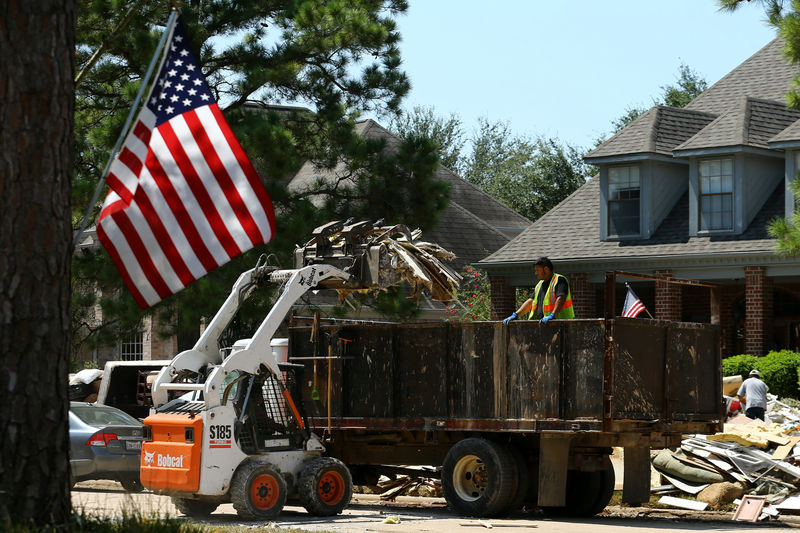(Reuters) - Some local governments in the 39 Texas counties declared disaster areas due to Hurricane Harvey could face operational and credit risks in the storm's aftermath, Moody's Investors Service said in a report released on Tuesday.
The credit rating agency said business disruptions and damages caused by the storm that made landfall on Aug. 25 will negatively affect property and sales taxes in the region. However, most governments have revenue-raising flexibility and reserves, along with insurance proceeds and state and federal aid to cushion the blow of lower tax collections and storm-related capital costs.
"Municipal utility districts (MUDs) are more at risk
and exposed to greater credit deterioration because of less economic diversity and no active management," Moody's said.
There are hundreds of MUDs in Texas that issue bonds to finance water projects and other infrastructure improvements in typically small geographical areas.
Moody's said the MUDs are vulnerable to declining property values that will likely result from post-hurricane reappraisals.
The risk for school districts in the disaster area is maintaining enrollment, a key factor in determining state funding.
"If there is a long-term trend of outmigration of students from a particular school district, longer-term credit challenges will likely persist," the report said.
Local water and sewer systems face a drop in user fees due to damaged systems and population displacement.

"Increased expenditures related to infrastructure repairs and supply remediation will test utility systems' liquidity, especially during a period of depressed user-fee revenues," Moody's said.